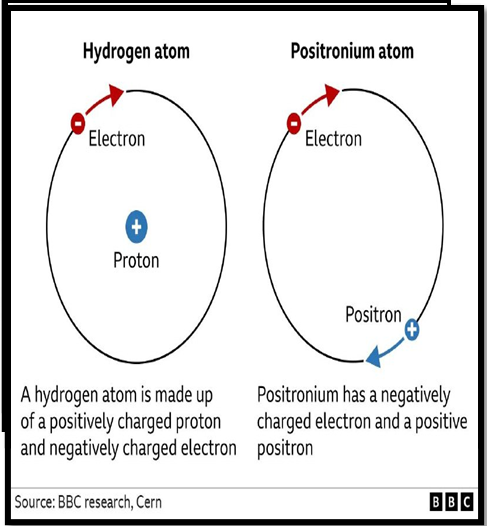IN A FIRST, CERN SCIENTISTS CARRY OUT LASER COOLING OF POSITRONIUM
Why in the news?
- An international team from AEGIS collaboration, part of CERN, achieved a groundbreaking feat by laser cooling Positronium.
- Positronium, composed of a bound electron and positron, is a fundamental atomic system but has a short life, annihilating in 142 nanoseconds.
About the CERN Experiment:
- Physicists from 19 European and one Indian research group at CERN conducted the experiment, a precursor to forming anti-Hydrogen and measuring Earth’s gravitational acceleration on it.
- This marks a significant step towards potentially creating a gamma-ray laser with applications beyond physics, allowing researchers to explore atomic nuclei.
| About CERN European Organization for Nuclear Research
● Founded in 1954, CERN is the world’s largest nuclear and particle physics laboratory. ● Home to the Large Hadron Collider (LHC), it identified the Higgs boson in 2012. ● Geneva-based, it straddles the French-Swiss border, boasting 22 European member states. ● Israel is the sole non-European full member, with India as an associate and the USA as an observer. ● CERN holds official Observer status at the United Nations. |





